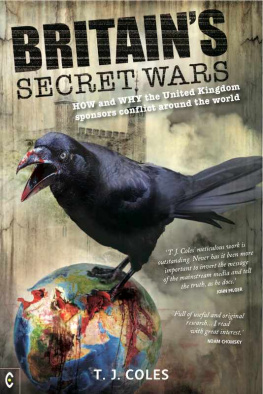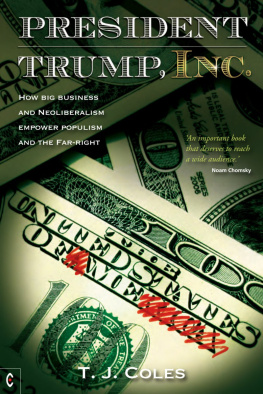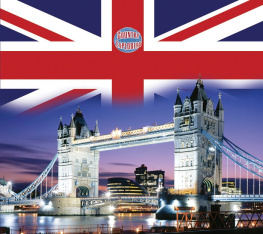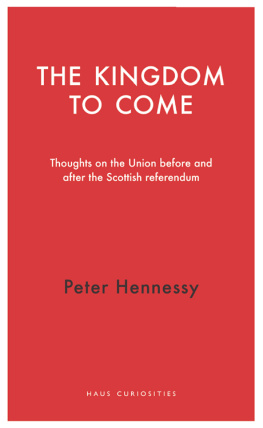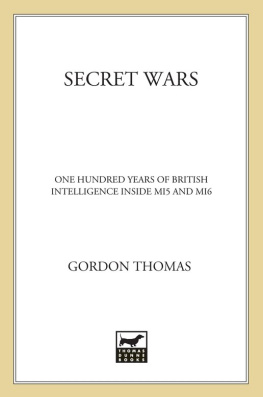T. J. Coles - Britains Secret Wars : How and Why the United Kingdom Sponsors Conflict Around the World.
Here you can read online T. J. Coles - Britains Secret Wars : How and Why the United Kingdom Sponsors Conflict Around the World. full text of the book (entire story) in english for free. Download pdf and epub, get meaning, cover and reviews about this ebook. City: La Vergne, year: 2016, publisher: Rudolf Steiner Press, genre: Politics. Description of the work, (preface) as well as reviews are available. Best literature library LitArk.com created for fans of good reading and offers a wide selection of genres:
Romance novel
Science fiction
Adventure
Detective
Science
History
Home and family
Prose
Art
Politics
Computer
Non-fiction
Religion
Business
Children
Humor
Choose a favorite category and find really read worthwhile books. Enjoy immersion in the world of imagination, feel the emotions of the characters or learn something new for yourself, make an fascinating discovery.
Britains Secret Wars : How and Why the United Kingdom Sponsors Conflict Around the World.: summary, description and annotation
We offer to read an annotation, description, summary or preface (depends on what the author of the book "Britains Secret Wars : How and Why the United Kingdom Sponsors Conflict Around the World." wrote himself). If you haven't found the necessary information about the book — write in the comments, we will try to find it.
T. J. Coles: author's other books
Who wrote Britains Secret Wars : How and Why the United Kingdom Sponsors Conflict Around the World.? Find out the surname, the name of the author of the book and a list of all author's works by series.
Britains Secret Wars : How and Why the United Kingdom Sponsors Conflict Around the World. — read online for free the complete book (whole text) full work
Below is the text of the book, divided by pages. System saving the place of the last page read, allows you to conveniently read the book "Britains Secret Wars : How and Why the United Kingdom Sponsors Conflict Around the World." online for free, without having to search again every time where you left off. Put a bookmark, and you can go to the page where you finished reading at any time.
Font size:
Interval:
Bookmark:
T.J. COLES studies the philosophy of neurology and cognition at the University of Plymouth, UK, with reference to the aesthetic experiences of the blind and visually impaired. He is director of the Plymouth Institute for Peace Research (PIPR), editor and co-author of Voices for Peace and author of The New Atheism Hoax (both 2015, PIPR). His political writings have appeared in the New Statesman, Lobster, Peace Review and Z Magazine. He is also a columnist with Axis of Logic and in 2013 was shortlisted for the Martha Gellhorn Prize for journalism.
BRITAIN'S
SECRET WARS
HOW AND WHY THE UNITED KINGDOM
SPONSORS CONFLICT AROUND THE WORLD
T.J. COLES

Clairview Books Ltd.,
Russet, Sandy Lane,
West Hoathly,
West Sussex RH19 4QQ
www.clairviewbooks.com
Published in Great Britain in 2016 by Clairview Books
T.J. Coles 2016
This book is copyright under the Berne Convention. All rights reserved. Apart from any fair dealing for the purpose of private study, research, criticism or review, no part of this publication may be reproduced, stored in a retrieval system, or transmitted in any form or by any means, electronic, electrical, chemical, mechanical, optical, photocopying, recording or otherwise, without the prior written permission of the copyright owner. Inquiries should be addressed to the Publishers
The right of Tim Coles to be identified as the author of this work has been asserted in accordance with sections 77 and 78 of the Copyright, Designs and Patents Act, 1988
A CIP catalogue record for this book is available from the British Library
Print book ISBN 978 1 905570 78 2
Ebook ISBN 978 1 905570 69 0
Cover by Morgan Creative
Typeset by DP Photosetting, Neath, West Glamorgan
Contents
Foreign policy - To pursue clandestine, illegal operations
Peaceniks - terrorist sympathisers
ACRONYMS
AI Amnesty International
BMENAI Broader Middle East and North Africa Initiative
BRA Bougainville Resistance Army
CIA Central Intelligence Agency (US)
DFID Department for International Development (UK)
EIJ Egyptian Islamic Jihad
EU European Union
FARC Fuerzas Armadas Revolucionarias de Colombia
FBI Federal Bureau of Investigation (US)
FCO Foreign and Commonwealth Office (UK)
FSA Free Syrian Army
GCHQ Government Communications Headquarters
HMG Her Majesty's Government
HRW Human Rights Watch
ICG International Crisis Group
ICU Islamic Courts Union (Somalia)
IMF International Monetary Fund
IS Islamic State (aka, Daesh, ISIL, ISIS)
ISIL Islamic State of Iraq and the Levant
ISIS Islamic State of Iraq and Syria, (aka Islamic State of Iraq and al-Sham)
JFC Justice for Colombia
KLA Kosovo Liberation Army
LIFG Libyan Islamic Fighting Group
LNG Liquefied Natural Gas
LTTE Liberation Tigers of Tamil Eelam (or Tamil Tigers)
MEK Mujahideen-el-Khalq
MEPI Middle East Partnership Initiative
MI5 Military Intelligence, Section Five
MI6 Military Intelligence, Section Six
MoD Ministry of Defence (UK)
MSC Mujahideen Shura Council
NATO North Atlantic Treaty Organisation
PIL Public Interest Lawyers
PNG Papua New Guinea
RAB Rapid Action Battalion
RAF Royal Air Force
RAWA Revolutionary Association of the Women of Afghanistan
RIIA Royal Institute of International Affairs
SAS Special Air Service
SBS Special Boat Service
SNC Syrian National Council
TAPOL Indonesian human rights group
TFG Transitional Federal Government (Somalia)
USAID United States Agency for International Development
UN United Nations
UNGA United Nations General Assembly
UNHCR United Nations High Commission for Refugees
UNSC United Nations Security Council
UNSCR United Nations Security Council Resolution
WFP World Food Programme
WHO World Health Organization
WND World Net Daily
Introduction
Foreign policy - To pursue clandestine, illegal operations
A few years ago, Britain's Defence Secretary, Liam Fox, said: If you want to keep a secret in the United Kingdom nowadays, the best place to speak it is in the House of Commons, as it is the least likely place to be reported. Taking Fox at his word, this book consults government records in order to bring Britain's secret wars to public attention. The evidence presented here suggests that Britain has a greater role in world affairs than many realize. Secret wars are waged for the financial benefit of sectional interests (as internal records reiterate) and result in widespread crimes against humanity, including ethnic cleansing, torture and assassination.
Domestic populations are generally pacifistic and responsive to humanitarian concerns. For that reason there is a concerted effort by governments to keep most wars secret. They do so by threatening libel, issuing directives to editors (D notices), and occasionally raiding offices to seize leaked files. A Royal Institute of International Affairs (Chatham House) book from 1997 explains: Much of our foreign policy is conducted on the sly for fear that it would raise hackles at home if people knew what we were pushing for.
The aims of this book are to raise awareness about what is happening by filling a gap in journalism and scholarship, and to encourage journalists, scholars, activists, and the tax-paying public to think more carefully about what Britain is doing in the world, rather than focusing exclusively on the crimes of other countries. An evidence-based framework is laid out in this Introduction in an effort to explain the motives behind the secret wars, drawing on government documents and policy briefings. Having contextualized contemporary British foreign policy here (the why), Parts address a number of secret wars taking place around the world (the where and how).
The British Empire's notion of free trade was of such benefit to a small number of monarchs, peers, merchants and traders that it became the ideal post-WWII model for global economic control. However, WWII wrought such damage to the global economy that an international system of regulated capital (Bretton Woods) was needed. In the 1970s, with Europe reconstructed along lines favourable to US businesses, the system was deregulated and free trade promoted. This Introduction defines free trade and illustrates how the Ministry of Defence uses violent methods to impose and maintain it where necessary.
The New Trade Agenda...
In building its Empire (circa 1583-1914), Britain invaded something like 171 out of 193 UN member states in the world today, writes historian Stuart Laycock, who omits, among others, the Falklands/Malvinas and Gibraltar, subjectively sticking to the more interesting and unusual invasions. It is also worth noting that Britain created many borders (directly and indirectly), such as the Durand Line (never recognized by the indigenous population), which separates Pashtuns in Afghanistan from their kinsfolk in Pakistan. Providing no evidence, Laycock asserts some truth in the view that to the majority of Britons, Empire was a force for good. Other historians, notably Mike Davis and John Newsinger, provide ample documentary evidence to explode the myth of imperial beneficence. [A]pologists, writes Newsinger, deny that imperial rule rests on coercion, on the policeman torturing a suspect and on the soldier blowing up houses. Mike Davis documents the horrors of free trade in India, which led to the deaths of 29 million people by famine.
By the 1920s, the British Empire was all but over and the American Empire (which denies that it is an Empire) was rising. For British policymakers, like the Milner Group, the logical conclusion was to integrate with the US. In 1920, Britain's main planners of the League of Nations stated their intention to use international force when desired: We wish to assist and develop the simple mechanism of international dealing ... without mortgaging our freedom of action and judgement under an international Covenant. Lord Milner's publication, The Round Table, expressed the Group's desire to use the League to provide us with the machinery for United British action in foreign affairs ... A settlement based on ideal principles and poetic justice can be permanently applied and maintained only by a world government to which all nations will subordinate their private interests.
Next pageFont size:
Interval:
Bookmark:
Similar books «Britains Secret Wars : How and Why the United Kingdom Sponsors Conflict Around the World.»
Look at similar books to Britains Secret Wars : How and Why the United Kingdom Sponsors Conflict Around the World.. We have selected literature similar in name and meaning in the hope of providing readers with more options to find new, interesting, not yet read works.
Discussion, reviews of the book Britains Secret Wars : How and Why the United Kingdom Sponsors Conflict Around the World. and just readers' own opinions. Leave your comments, write what you think about the work, its meaning or the main characters. Specify what exactly you liked and what you didn't like, and why you think so.

